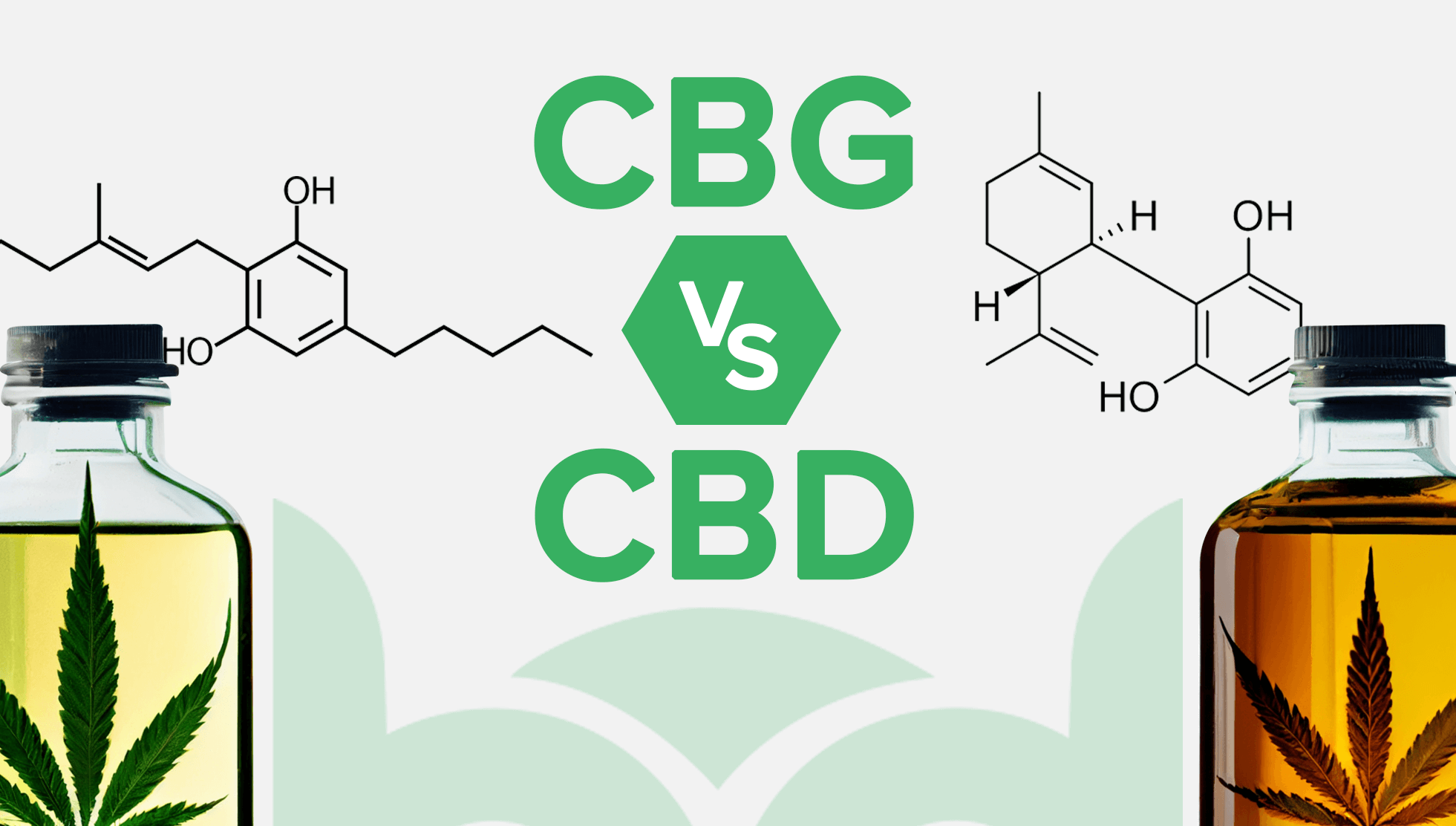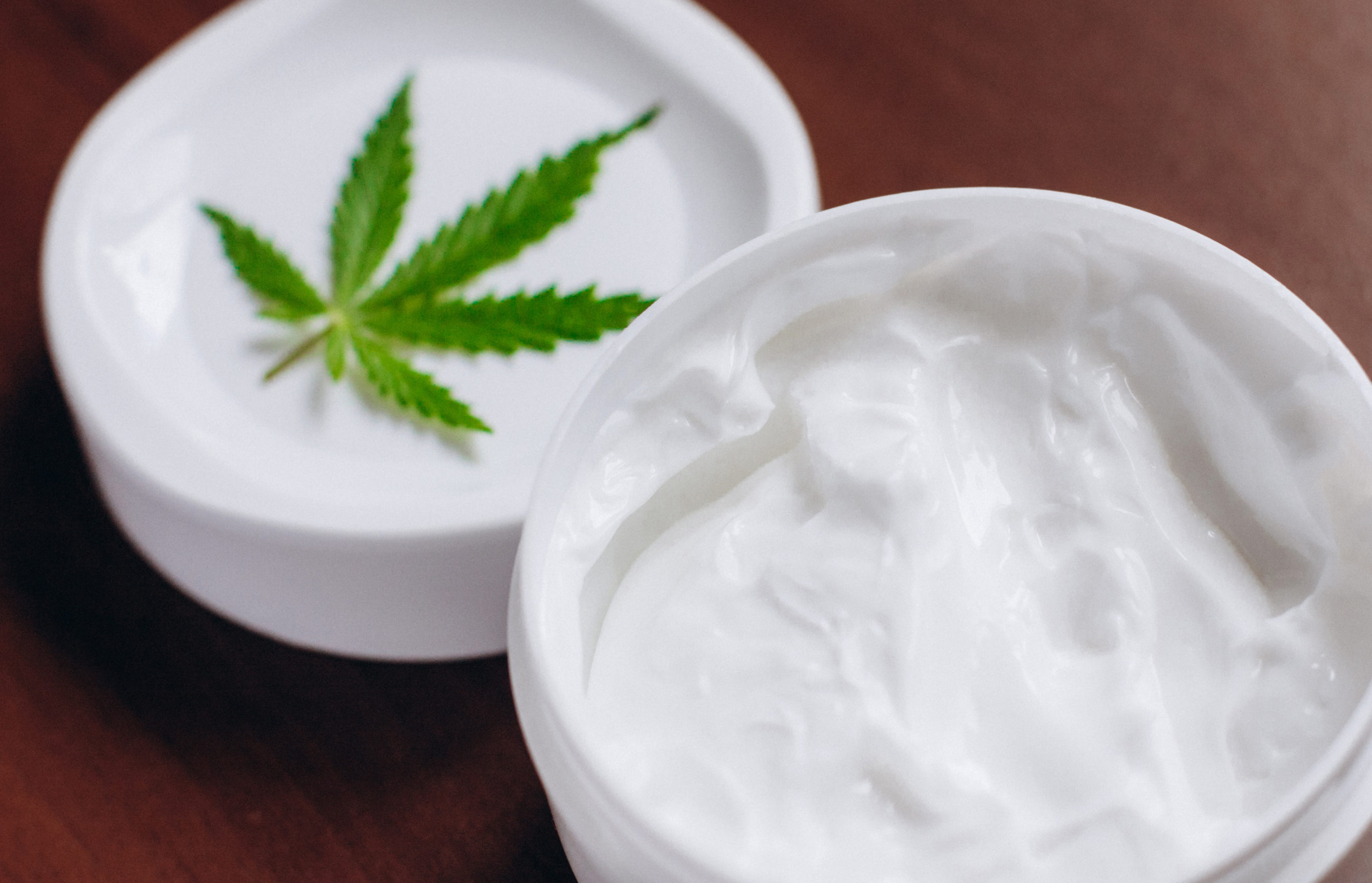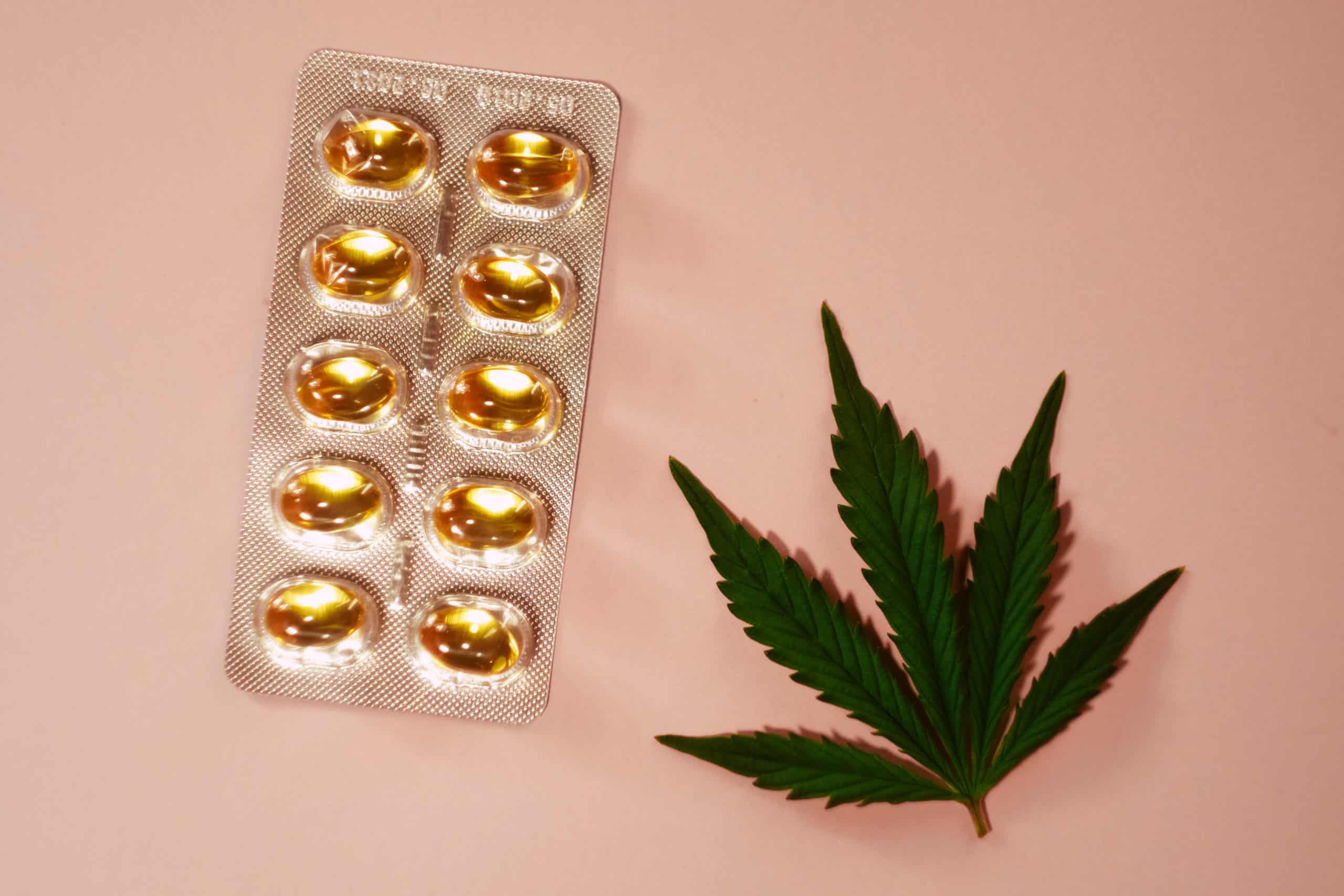-
- Market Research
- |
- CBD Near Me
- |
- Giveaways
- |
- Newsletter
- |
- Contact
- |
- Advertise
- |
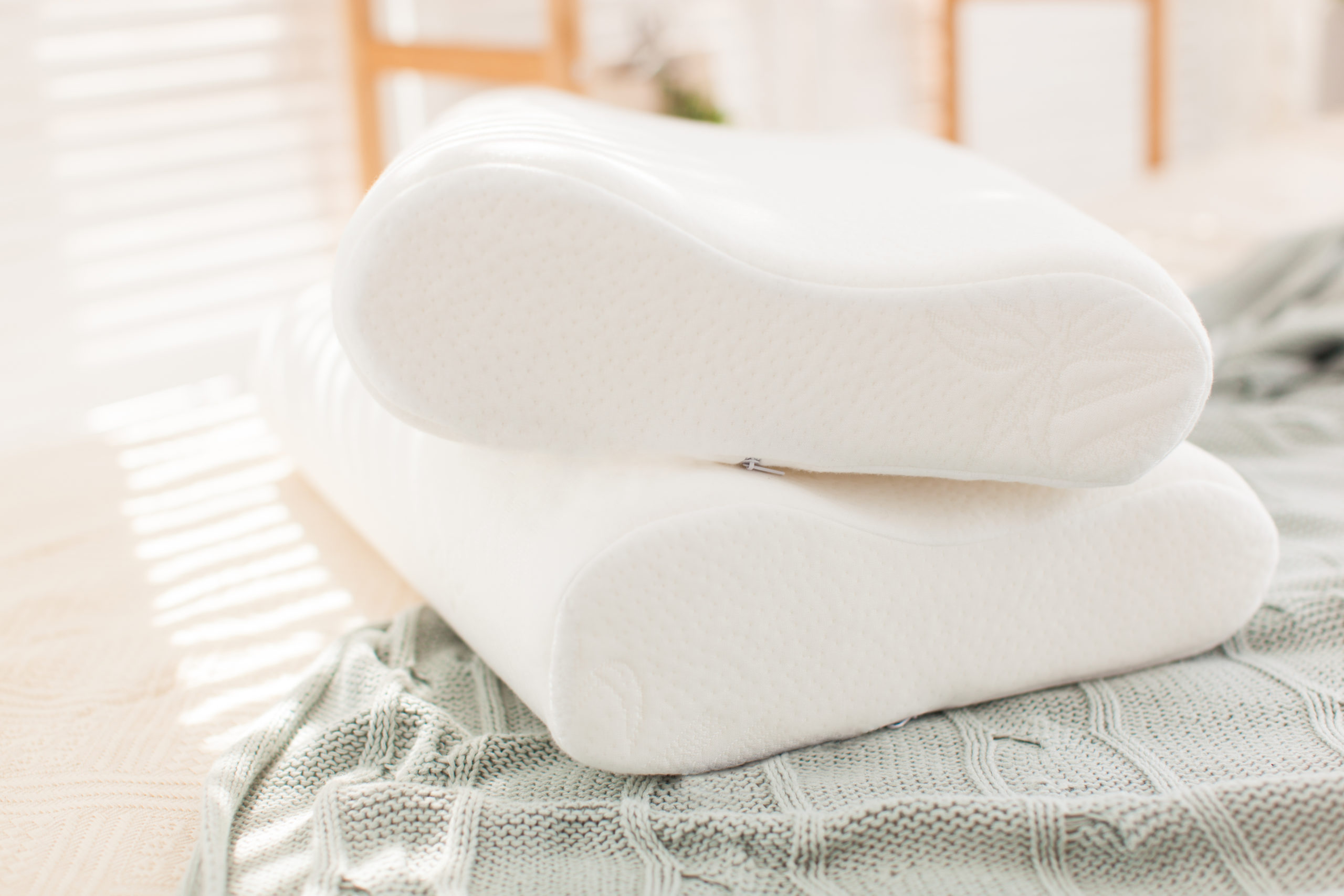
The CBD landscape has been made fertile for scammers, and they’ve answered with their usual gusto.
Thanks to a series of landmark events and key developments over the past half-decade, like the removal of industrial hemp from the Schedule 1 substances list and steady CBD endorsements from celebrities, the CBD market has grown to a size that has attracted some morally flexible parties.
Our search for the most blatantly scammy CBD products was actually a close race, but we have to give it to the CBD pillow in the end for its stylishly unabashed approach to truth-bending.
The Product
Some bedding brands have started marketing CBD-infused pillows—even claiming the same benefits that CBD oil sellers do in many cases—as a way to differentiate themselves in a highly saturated market.
Each brand claims to have a proprietary method for somehow imbuing a pillow with enough CBD to last six months, nine months, or even a year.
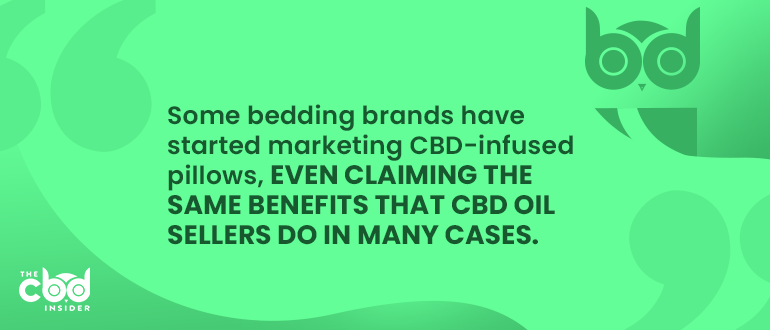
The Pitch
The buzzy phraseology used by brands that sell CBD pillows will likely ring familiar to any consumer who has ever purchased, well, any over-hyped health and wellness product.
We’ve come across enough of these products to master this lightly recycled scam-speak, which we will model for you now in this mock-up:
“Introducing the patented ______ pillow, a new revolution in CBD-infused sleep technology. The ______ pillow features a proprietary nano-fusion design that allows for the slow release of sleep-promoting CBD from thousands of tiny crystals embedded in the material. As you move around, the crystals rupture and the CBD is absorbed through your scalp. Powered by sleep science innovation.“
Most of us are so jaded by this kind of language that we gloss right over it and scroll down to the reviews when shopping online.
This particular use of shiny, fluffy filler is much less innocent than it seems, however, because while it’s trying to spark your interest with one hand, it’s shoving down a long list of legitimate concerns with the other.
The Problem(s)
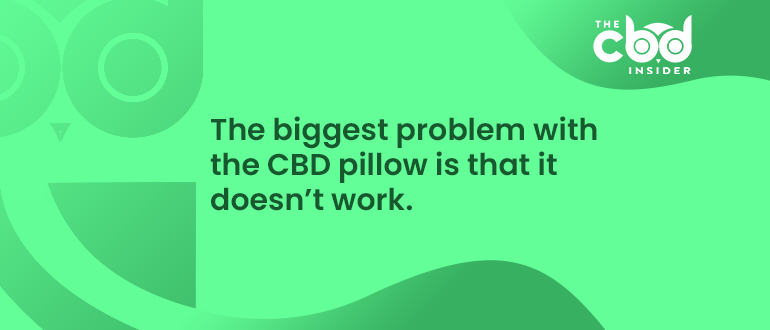
While any well-crafted pillow can promote a better night’s sleep, it’s very, very unlikely that the addition of CBD in this manner is making a difference at all—here’s why.
Stopped at the Border
The claim that “microdoses” of CBD can power their way through a pillowcase, a head of hair, and your skin with more than 0.01% efficiency is a lofty prospect indeed.
Skin is designed to keep things out, which is why transdermal patches and topical products use tight liners, special ingredients, and/or electrical currents to get substances across this barrier.
Without these necessary steps, even a CBD-infused pillowcase would just be smearing negligible amounts of CBD onto your skin.
Working on Faith Alone
Even if a CBD pillow could deliver a bioactive quantity of the compound into your skin, how are you supposed to know when your pillow has run out of this non-intoxicating substance?
Some of the more forward-thinking hawkers will at least throw out a date, claiming their products will last for x number of months, but this is obviously a highly inexact estimate.
So many factors could throw this number off, including your size, how often and how long you sleep, how active you are while sleeping, whether or not the CBD pillow gets wet, and so on.
As a general rule, if you can’t tell when a product has run out or not, the chance of it being a scam (or at least a cheap gimmick) goes way up.
What Happens Now?
Chances are, you’re going to have that CBD pillow for a good while after it has run out of CBD.
When you realize that the CBD is gone, you’re stuck with a dilemma: Replace your purchase with another CBD pillow and waste money, or go without CBD as you wait for the pillow to run its full life cycle?
Again, it’s very unlikely that you’re getting an effective amount of CBD in the first place.
Good Luck in There, “Crystals”
Finally, if a bit of friction and/or pressure from your head rolling around really activates these microscopic CBD crystals like the sellers claim, then how are they going to fare in the laundry machine?
Even gently hand-washing and drying this kind of product would likely wash out most or all of the CBD.
In other words, consumers will have to choose between washing their CBD pillow and continuing to reap the supposed benefits.
CBD Pillows Aren’t the Only Gimmicks Out There
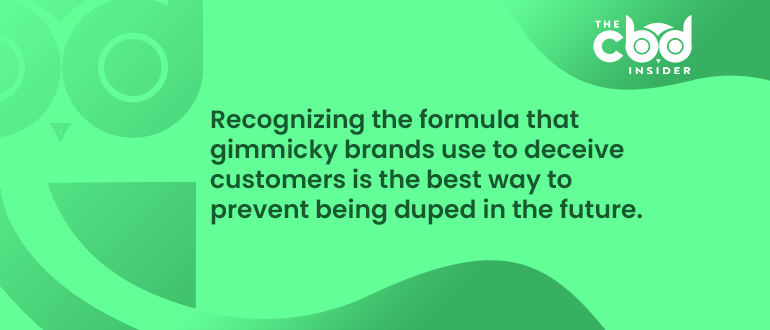
The list is unfortunately quite long, but here’s a quick tour of additional CBD scams you can expect to come across:
- CBD-infused clothing
- Irrational claims of curing diseases, even cancer
- Copycats (impersonating established sellers online)
- Fine print traps (“just pay shipping,” then get roped into monthly membership that’s almost impossible to cancel)
It’s not so important that you memorize every suspicious item on this list, but rather, that you adopt a critical mindset when evaluating any CBD brand for the first time.
However successful and promising this industry is, CBD is still unregulated, meaning consumers have to rely more on their own research and not the government’s.
If you’re looking to hone your scam-sniffing skills further, a tour through our trusted brands will hopefully ease you into this critical mindset.
By valuing accountability and quality over hollow buzzwords and distracting devices, your purchasing power can be used to shape the industry for the better.


